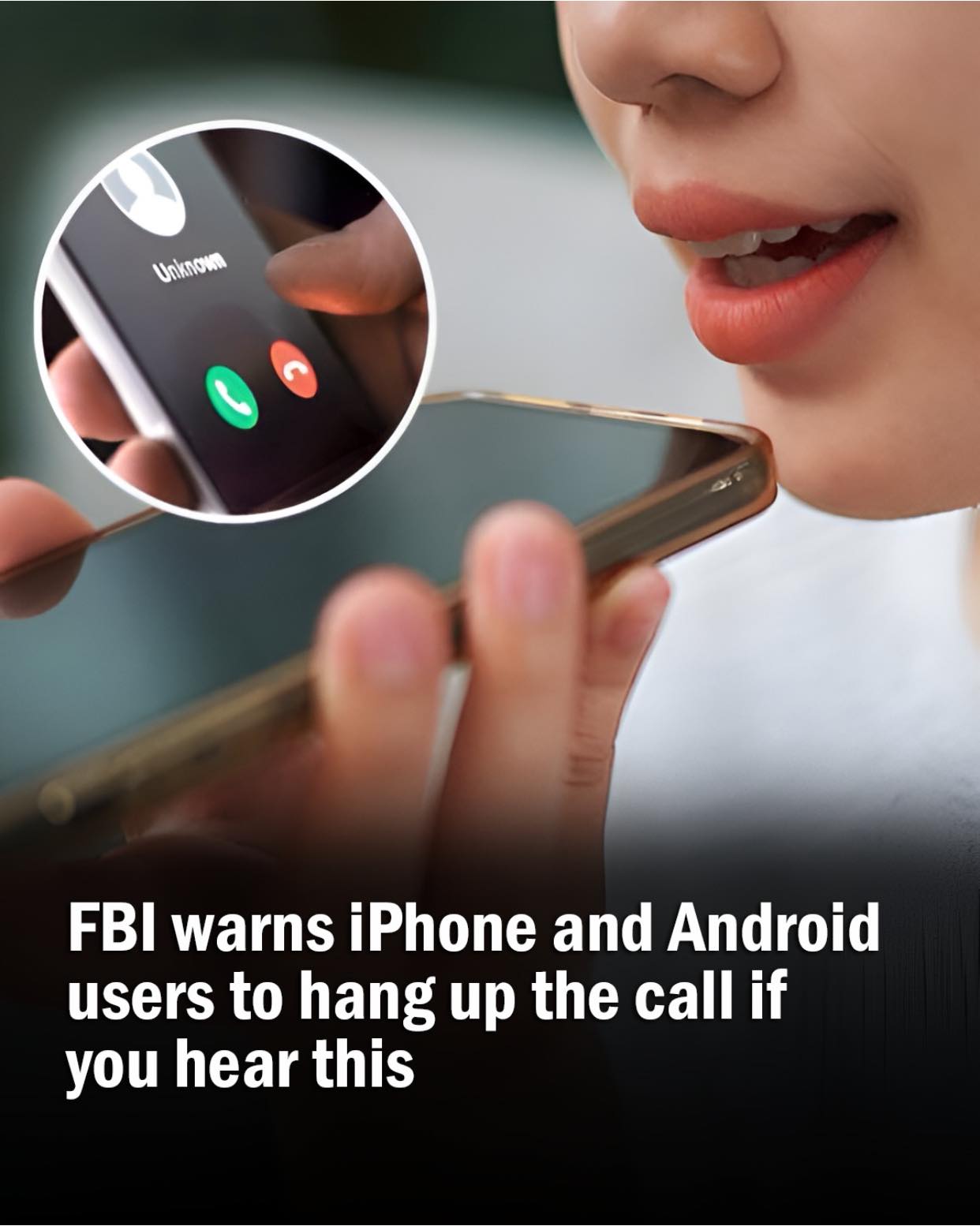The FBI has issued a serious warning to iPhone and Android users nationwide, urging people to stay alert and hang up immediately if they receive suspicious phone calls featuring high-pressure threats or strange noises. These scams are becoming more sophisticated than ever, using tactics that can deceive even tech-savvy individuals into handing over their personal and financial information.

The most concerning aspect of this new wave of fraud is how real it all seems, with scammers using advanced techniques like “caller ID spoofing” to make it appear that the call is coming from a trusted source such as a police department, bank, or government agency. In some cases, the scammer even impersonates real officials, giving names and badge numbers to sound more convincing. For example, imagine your phone rings and the caller ID shows your local police station. You answer, only to hear a voice telling you there’s a warrant for your arrest or that you’ve missed jury duty. Or they might claim that your bank account has been hacked and needs immediate attention.
The person on the other end pressures you to send money right away, saying that if you don’t act fast, you could be arrested or lose everything in your account. This tactic is designed to trigger panic and override logical thinking, leading even cautious people to react without verifying the situation. According to the FBI, there are several warning signs to look out for when identifying these scams. One major red flag is if the caller demands immediate payment, particularly through wire transfers, gift cards, or cryptocurrency. No legitimate business or government agency will ever ask for sensitive details or money over an unsolicited phone call.
Scammers rely on urgency and fear to trick people into acting without thinking, often telling victims that they’ve missed a legal obligation or that their personal information is compromised. Even if the caller ID looks official, the FBI strongly advises people to hang up. If the matter is real, the agency will contact you through official channels like a written notice, an in-person appointment, or via their verified website. Additionally, you should never press any buttons when prompted during one of these calls, as doing so can confirm that your number is active and lead to even more scam attempts in the future.
If you receive a call like this, the best thing to do is disconnect immediately without responding. Once you hang up, you should contact the organization that the scammer claimed to represent, but make sure to use a number listed on their official website—not the one that called you. It’s also important to report the incident to your local law enforcement and file a complaint through the FBI’s Internet Crime Complaint Center (IC3). These reports help law enforcement monitor trends, track scammers, and issue public warnings to prevent others from falling into the same trap. The FBI is also raising awareness about similar scams being carried out through text messages. These messages often claim that you owe small amounts of money, like for unpaid tolls or utility bills, and include a link for you to click. However, tapping that link can lead to the theft of your personal or financial information. As a general rule, any text message or call that requests sensitive details or payments should be treated with extreme caution. If something feels off, trust your gut and investigate the situation before taking any action. Staying informed is your best defense. These scams can cause serious damage, not just financially but emotionally as well, especially for those who may not be familiar with how these tactics work. The FBI urges everyone, regardless of what kind of phone they use, to remain cautious and aware of how these scams operate. No credible organization will ever demand immediate payment or sensitive data through a surprise call or message. By staying alert, refusing to engage, reporting suspicious activity, and sharing this information with others, you can help stop scammers and protect yourself and your community from becoming their next target.





